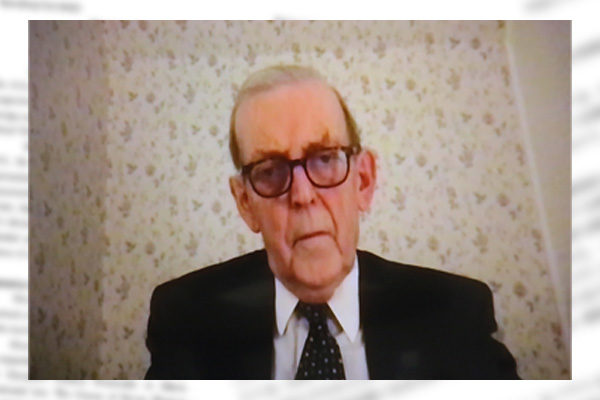On March 9, the Japan Institute for National Fundamentals invited Paul Kennedy, professor of history at Yale University and author of “The Rise and Fall of the Great Powers,” a global bestseller 33 years ago, to participate in an online discussion on the question of whether America is declining.
Is America really declining? Will the decline continue in the future? Is the decline relative or absolute? We cannot discuss Japan’s national security without taking America into account. Can we build on American national power to prevent the Chinese Communist Party from dominating the world and defend democracy, the rule of law and the peaceful resolution of conflicts? This is a serious question for Japan, having global impacts.
America to remain strong
Kennedy at his home near Yale University in Connecticut participated in more than two-hour discussion with me and JINF Vice President Tadae Takubo, indicating his confidence in the future of the United States.
The theory of American decline represents a view that China has emphasized and disseminated. On the March/April issue of Foreign Affairs magazine, former Australian Prime Minister Kevin Rudd argued that Chinese President Xi Jinping believes the U.S. is experiencing a steady, irreversible structural decline. Kennedy categorically denied the Xi view, noting that the decline of the U.S. was not absolute but relative. If the coronavirus disaster ended, he said, the U.S. would recover a strong economy, bring about prosperity to its people and restore confidence in the government, leading to the respect and honor of democracy and the stability of the whole country.
But America’s recovery would have to be considered in comparison with China’s further development. We asked Kennedy how America would address China’s fierce military buildup.
Kennedy answered that China would be disappointed after its propaganda campaign to brand America as declining and that America would remain strong even if it may have to share positions with other rising powers. President Joe Biden would place emphasis on partnership with American allies and achieve naval and air force cooperation with Japan, Australia, India, South Korea, and other allies and partners, sending a warning message to China, he said.
No alternative to Japan-U.S. alliance
On March 15, the U.S. secretaries of state and defense arrived in Japan. Washington released a fact sheet titled “Reaffirming the Unbreakable U.S.-Japan Alliance” on March 14, which specified the United States’ commitment to the defense of Japan as “absolute” and emphasized the significance of Japan-U.S. cooperation in responding to China’s challenge.
Kennedy said that Japan would have alternatives to China if its economic relations with China deteriorated. However, if its security relations with the U.S. deteriorated, he said, Japan would have no alternative to the U.S. This is right. Japan should take this opportunity to make maximal effort to build up its defense capabilities in cooperation with the U.S. Japan must not make itself a power vacuum of the region.
Yoshiko Sakurai is President of the Japan Institute for National Fundamentals and a freelance journalist.


